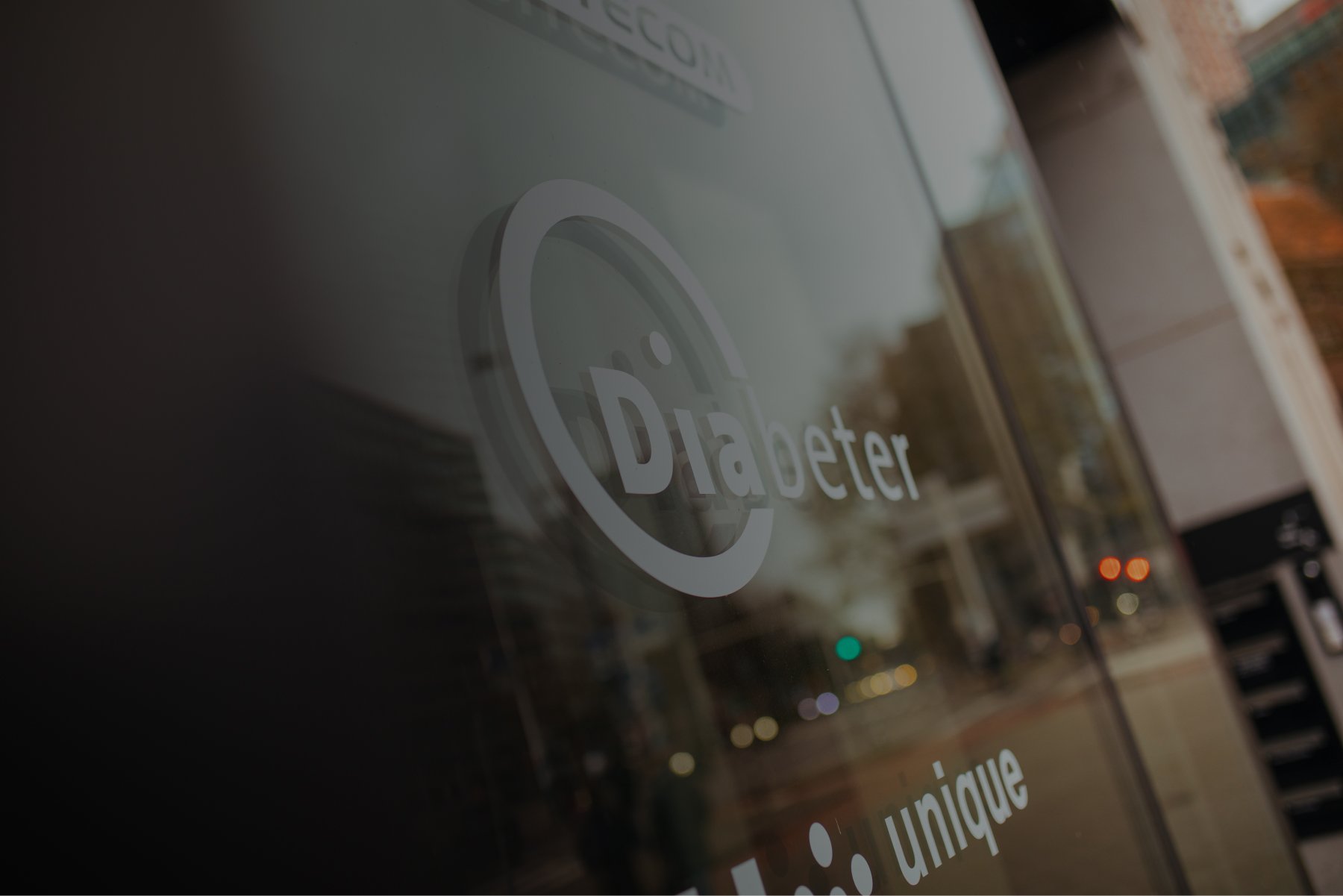Research

Diabeter Research
SCIENTIFIC RESEARCH: THE ENGINE BEHIND PROGRESS AT DIABETER
At Diabeter, we believe that true progress in the care for type 1 diabetes is only possible through scientific research. Research is not a side issue, but the core of our mission: enabling people with type 1 diabetes to live a healthy life.
In collaboration with leading academic centers such as Amsterdam UMC, LUMC, UMCG, and Radboudumc, we continuously invest in innovative and impactful research. This allows us not only to improve current healthcare but also to shape the care of tomorrow.
Our focus lies on crucial themes within type 1 diabetes, including the development of new treatments, advanced technologies for glucose monitoring, and the use of data to enable personalized care. We also study how nutrition, mental health, and social context influence the success of treatment.
On our English-language website about type 1 diabetes research, we share all these efforts in detail. [link]
This site is primarily intended for people working in diabetes research, but individuals living with diabetes are of course very welcome.
Here you’ll find an overview of all studies currently running at Diabeter or those we are participating in, as well as publications, conference posters, presentations, and the latest news on diabetes research.
Science at Diabeter is practice-oriented: insights from research are directly translated into better care in the consultation room.
This ensures our patients benefit from the latest knowledge and helps us stay at the forefront in the fight against diabetes complications.
By continuing to invest in research, we invest in perspective—for everyone living with type 1 diabetes.
Go to the Diabeter Research website
QUALITY RESEARCH AND SCIENTIFIC RESEARCH
Quality Research
The data from all patients collectively is used to evaluate care outcomes and monitor quality. An example of this is the average HbA1c of all individuals treated at Diabeter, or the number of people using an insulin pump.
Such figures are important for continuously improving the quality of your care. Diabeter is also required to report this data to institutions and government bodies. This always involves anonymous and aggregated data (at group level).
Scientific Research
In addition, your medical data is used for scientific research into the causes of diabetes and to improve care. Here too, we treat your data with confidentiality. Research reports or publications will never contain information that can be traced back to you or your child. Only coded data is used, and your name will always remain confidential.
STUDY PARTICIPATION AT DIABETER
Diabeter is currently involved in several important research studies that contribute to the future of type 1 diabetes care. Below, we highlight three of them:
Diagnode-3
For this international study, we are looking for participants between the ages of 12 and 29 who have recently (less than six months ago) been diagnosed with type 1 diabetes. This research investigates whether a specific medication can influence the course of the disease by supporting the immune system.
We are looking for research candidates between the ages of 12 and 29 who were diagnosed with type 1 diabetes less than six months ago.
Watch the invitation from our pediatric endocrinologist Dr. Theo Sas here: Diagnode-3
D-Sense-2
In this study, conducted in collaboration with LUMC, we are investigating whether it is possible to “retrain” the immune system of people with type 1 diabetes to leave their own insulin-producing cells unharmed.
This involves the use of specially treated, body-own immune cells known as tolerogenic dendritic cells. The approach aims to slow down the autoimmune process while keeping the healthy part of the immune system intact.
Participants for this phase 1 study are carefully selected based on medical criteria. It is therefore not possible to sign up independently, but you may receive an invitation if you qualify.
CloudCare studie
In the CloudCare study, we are exploring how to improve the treatment of type 1 diabetes by remotely supporting individuals through digital technology. Through daily data exchange—such as glucose levels and insulin settings—healthcare providers can respond more quickly and accurately to changes in a person’s health status. This leads to a more personalized and proactive care journey. The adult study has already recruited enough participants. For the pediatric study—focused on children with type 1 diabetes—we are still looking for participants.
Would you like to know if your child qualifies? Please contact us.
Explore Diabetes Research in the Netherlands
The following links provide insights into ongoing diabetes research initiatives across the Netherlands:
https://www.dvn.nl/leven-met-diabetes/deelnemen-aan-onderzoeken
https://www.diabetesfonds.nl/wat-we-doen/genezing-van-diabetes-type-1
https://www.kindenonderzoek.nl/
https://www.stichtingdon.nl/onderzoek